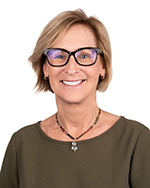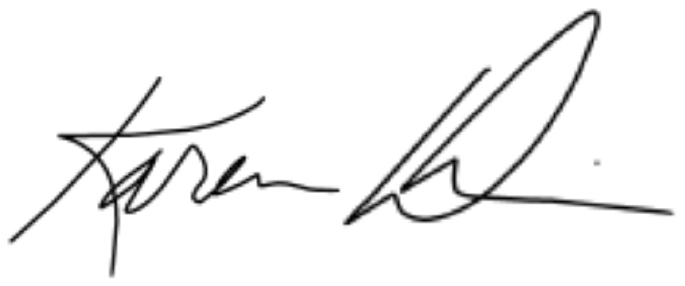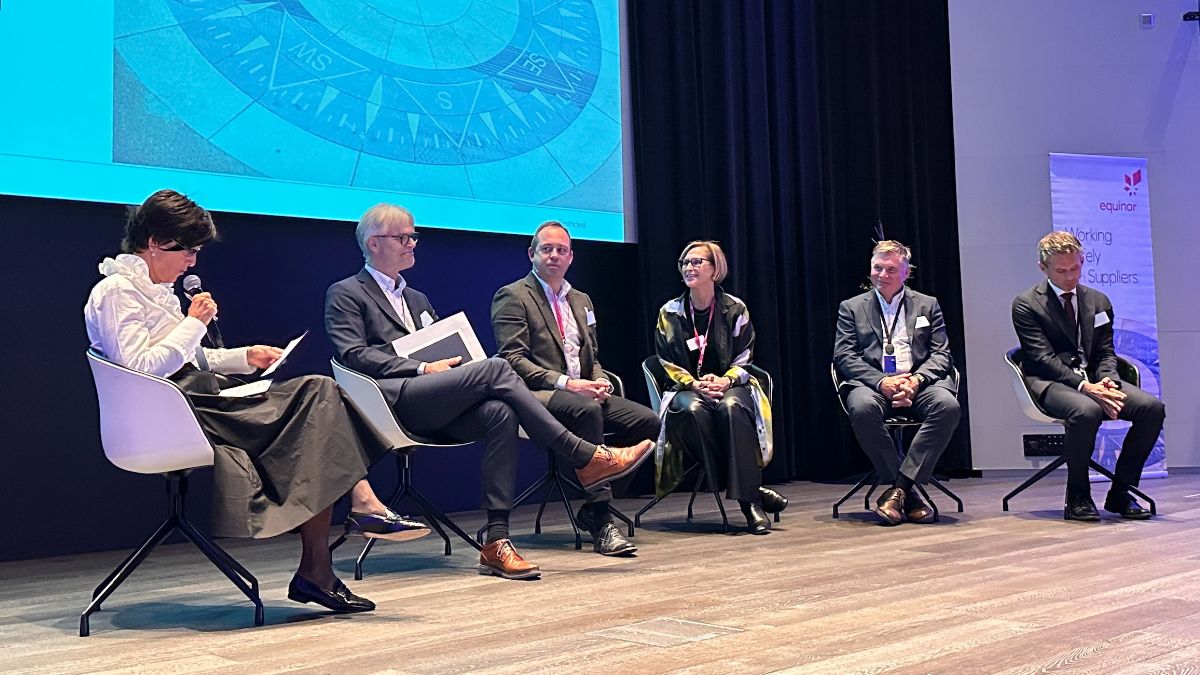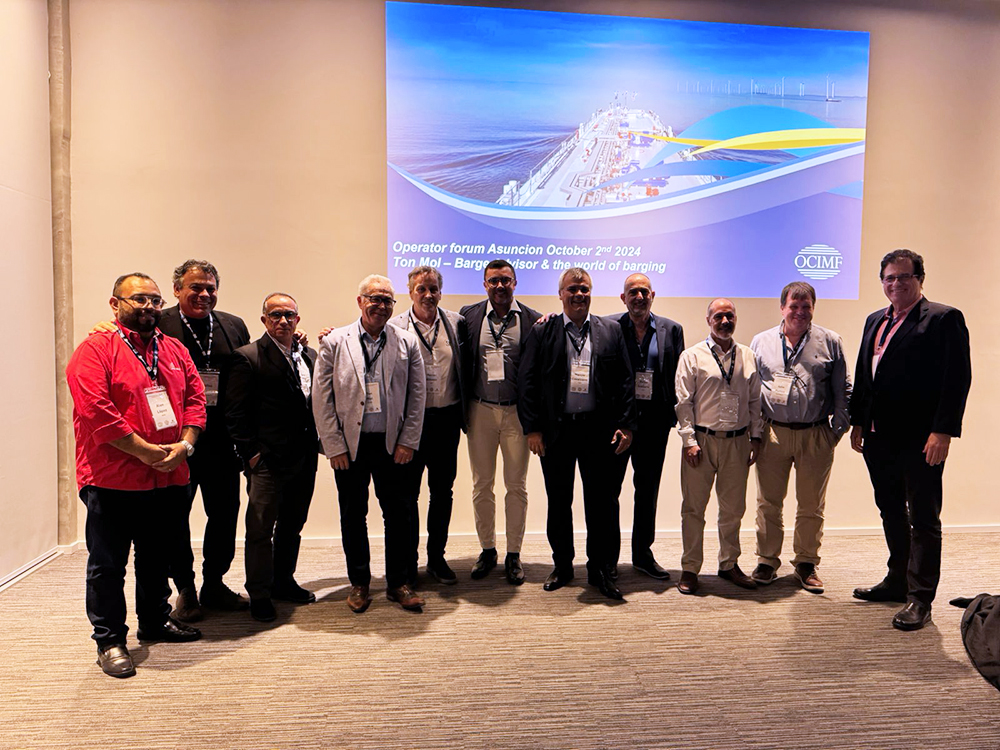“I want to thank Equinor for allowing us to share our perspectives – and learn from others."
Director's Log

Aaron Cooper and I were honoured to represent OCIMF at Equinor’s Working Safely With Suppliers (WSWS) Conference in Stavanger, Norway.
The WSWS programme was established in 2007 to better understand safety and security challenges, establish an environment for collaboration and knowledge sharing and work beyond established barriers towards safer operations. Participants represented a variety of commercial, operational, HSE and management roles from global shipping, storage and terminals.
Aaron and I took part in a panel session where we reiterated OCIMF’s role as a safety forum for sharing, learning, and facilitating marine assurance. Both of us touched upon our own personal safety journeys, sharing experiences throughout our careers and highlighting OCIMF’s significant role of developing and advocating best practices and driving initiatives to improve safety throughout the industry. Driving positive change and meeting challenges were common themes. Aaron took the opportunity to discuss SIRE 2.0 drivers and rationale and stressed the importance of an industry wide commitment to ensure a robust, transparent, and trusted programme.
I want to thank Equinor for allowing us to share our perspectives – and learn from others. You have proven that bringing together stakeholders from primary activities along the value chain to work collectively will make our industry better.

Karen Davis
Director OCIMF

OCIMF Managing Director Karen Davis and Programmes Director Aaron Cooper (centre) on a panel at Equinor’s Working Safely With Suppliers Conference 2024 in Stavanger, Norway. Karen highlighted OCIMF’s significant role driving initiatives to improve safety while meeting future industry challenges related to crewing shortages, evolving technology, global unrest, and emerging fuels. Aaron discussed the rationale for SIRE 2.0 and the important role industry will play in ensuring a robust programme. For details, contact Aaron Cooper, Programmes Director 该邮件地址已受到反垃圾邮件插件保护。要显示它需要在浏览器中启用 JavaScript。.
OCIMF runs pilot course to test SIRE 2.0 New Inspector training

OCIMF organised and delivered a successful pilot course in London from 14-18 October for the SIRE 2.0 New Inspector training programme.
The five-day course was run for employees of OCIMF submitting companies represented on the VIP Steering Group, who have been at the forefront of the development and delivery of the SIRE 2.0 programme from the start.
The course was opened by the Managing Director, Karen Davis and the Programmes Director, Aaron Cooper and was attended by 24 candidates and observers. The course was designed to test aspects such as maximum candidate numbers, logistics of course and tablet delivery to new candidates, the use of technology in the delivery of the programme as well as the allocation and completion of pre-course study. The feedback element of the course was vital so that further refinements can be made before commencing the 2025 course schedule
Attendees will gain accreditation under SIRE 2.0 once they have completed testing all phases of the New Inspector accreditation process, including audited inspections.
We are pleased to say that initial feedback on all aspects of the programme has been very positive. A full training programme for new SIRE 2.0 candidates commencing in 2025 will be announced shortly.
For further information contact Ajay Gour, OCIMF Training and Accreditation Manager, 该邮件地址已受到反垃圾邮件插件保护。要显示它需要在浏览器中启用 JavaScript。.
INTERTANKO Vetting Forum

OCIMF was pleased to be invited to present and engage in a panel session at the INTERTANKO Vetting Forum in Dubai on 22 October.
Aaron Cooper, OCIMF Programmes Director (above right), opened with a broad overview of the strategy to deliver SIRE 2.0 as well as a thank you to INTERTANKO and its membership for their close collaboration, support and feedback during the phased transition to enable delivery of the new inspection programme. Fahmi Tarmizi, OCIMF Programmes Technical Manager (above left), provided insights into some early learnings from SIRE 2.0, reiterated the process flow for conducting inspections and highlighted key points for operators to note during the booking process. The presentation ended with an engaging panel session where OCIMF was joined by Abdulla Deghaish, ADNOC Vetting Manager.
For more information, contact Aaron Cooper, Programmes Director 该邮件地址已受到反垃圾邮件插件保护。要显示它需要在浏览器中启用 JavaScript。.
Environmental Adviser attends EU Emission Trading System sub-group
The EU Monitoring, Reporting and Verification/Emission Trading System (ETS) sub-group was set up to advise on aligning the data reporting requirements for the EU ETS and the Fuel EU Maritime (FEUM), with Environmental Adviser Martin Young representing OCIMF.
The sub-group meets monthly in the run-up to the FEUM coming into force in January 2025. It met on 3 October to review the ETS extension to shipping. The European Commission presented analysis by Ricardo and the European Maritime Safety Agency on implementation and potential evasion risks, including legal adjustments to business activities. The evasion risks identified are as follows:
- Relocation of transhipment operations to non-EEA ports.
- Evasive port call and reordering of port calls.
- Modal shift to other forms of transport.
- Switch to smaller vessels.
- Assigning best performing vessels to EU routes.
- Cargo transfer from ship-to-ship to avoid calls in EEA ports.
Preliminary results are finding no clear evidence of any evasive behaviour due to the ETS extension. The European Commission will continue to monitor behaviour looking at the ETS phase-in and the FEUM implementation, ongoing investments at neighbouring non-EU ports, and route change announcements. The group meets next on 4 November.
For more information, contact Martin Young, OCIMF Environmental Adviser, 该邮件地址已受到反垃圾邮件插件保护。要显示它需要在浏览器中启用 JavaScript。.
Withdrawn information paper
Following a publication review the Publications & Advocacy TBT Principal Committee has approved the withdrawal of the information paper Guide for Implementation of Sulphur Oxide Exhaust Gas Cleaning Systems, first edition (2016), as the content is no longer current. This paper has been removed from OCIMF's website. Please remove copies from your records and digital library.
For more up-to-date guidance, see:
- MEPC.340(77) 2021 Guidelines for Exhaust Gas Cleaning Systems
- MEPC.1/Circ.899 2022 Guidelines for Risk and Impact Assessments of the Discharge Water from Exhaust Gas Cleaning Systems
- MEPC.1/Circ.883/Rev.1 2021 Guidance on indication of ongoing compliance in the case of the failure of a single monitoring instrument, and recommended actions to take if the Exhaust Gas Cleaning System (EGCS) fails to meet the provisions of the EGCS Guidelines
Inland barging news

Barge operator forum in Asuncion, Paraguay
On 2 October OCIMF and its South American members participated in an operator forum, along with representatives of the Ministry of Transport of Paraguay and industry organisation Centro de Armadores Fluviales y Maritimos (CAFyM). The forum was hosted by barge operator Mercopar.
OCIMF gave a detailed presentation on the updated International Safety Guide for Inland Navigation Tank-barges and Terminals (ISGINTT) and the recently published information paper, Recommendation for converting Inland Tank-barges from Open to Closed Cargo Operations in South and Central America. CAFyM and the Ministry of Transport provided an overview of the barging industry in the Paraguayan region and the issues the industry faces at this moment. This well-attended meeting was a good opportunity for OCIMF to engage with the barging industry in the region.

Smart Shipping EU Working Group update
On 11 October the Smart Shipping EU working group had its monthly meeting, this time hosted by Shell at its Rotterdam office. The group successfully completed the first draft of an information paper, Recommendations on Usage of Smart Autonomous Aids: Track Guidance Assistants for Inland Navigation (TGAIN). The draft will be finalised at subsequent meetings. OCIMF thanks Ben van Bemmel and Maurice van ‘t Loo of Shell for their hospitality.
Revision of Barge Inspection/Barge Particulars Questionnaires for South and Central America
The working group completed the revision of the BIQ and BPQ for South and Central America in Asuncion from 30 September to 4 October. The group also visited the offices of OCMIF member Raízen SA and operator Mercopar. Thanks to Raizen and Mercopar for their hospitality and support during this week.
For more information, contact Ton Mol, Barge Adviser, 该邮件地址已受到反垃圾邮件插件保护。要显示它需要在浏览器中启用 JavaScript。.
Maritime security snippets
Maritime Security Committee
The agenda for OCIMF's Maritime Security Committee (MSC) on 19 September covered several challenges faced by the membership, most notably in the Southern Red Sea and Gulf of Aden. Away from the operational issues the committee focussed on some key themes.
-
SIRE 2.0 – MSC received an update on the implementation of SIRE 2.0 and, once meaningful data becomes available, how analysis will identify areas for greater scrutiny. The MSC is very interested in using ‘campaign questions’ to drive security and cyber hygiene standards.
-
BMP update – MSC was pleased that draft work has been shared with industry associations for comment and the new design is taking shape.
-
Succession planning – MSC Chair Jose Parejo (CEPSA) will be stepping down in December after three years at the helm, giving the committee the opportunity to carefully plan the transition.
If any members need maritime security advice or would like to join the committee, please reach out to Russell Pegg at russell.pegg@ocimf,org.
Industry meets NIMASA
On 3 October 2024, industry associations met with the Director General of the Nigerian Maritime Administration and Safety Agency (NIMASA), Dr Dayo Mobereola at the IMO in London. The meeting was a great opportunity to establish a relationship with the new Nigerian administration and reenergise the work of the Nigeria Industry Joint Working Group (NIJWG). During the engagement, the Director General set out Nigeria’s vision for the Gulf of Guinea, in which security, investment and the environment are the focus.
Dr Dayo, pictured below (centre) with Karen Davis of OCIMF and other industry representatives, signed new terms of reference for the NIJWG, recognising much had been accomplished in this partnership.

Piracy report warns against complacency
In its Q3 report, the International Maritime Bureau (IMB) has remarked that maritime crime and piracy incidents are at their lowest since 1994, but threats to crews remain.
The IMB reported 79 incidents for the period of January-September 2024, down from 99 incidents in the same period last year, a significant overall reduction. From January to September, 62 vessels were boarded, six were hijacked while nine faced attempted attacks and two were fired upon. In 86% of incidents, perpetrators successfully gained access to the vessel with most incidents occurring at night. Violence towards crew members remains concerning, with 111 crew taken hostage, 11 kidnapped and three threatened.
IMB Director Michael Howlett said, “With reported incidents at their lowest since 1994, the decline in reported piracy and armed robbery incidents is encouraging. This is an important time to reinforce our message not to be complacent, and for vessel owners and operators to adhere to IMB guidelines. We commend governments and law enforcement for their excellent work, which has made this improvement possible.”
The full report can be found here.
IMO news
The 82nd Marine Environment Protection Committee (MEPC 82)
The 82nd session of the Marine Environment Protection Committee was held at the IMO headquarters from 30 September to 4 October 2024 with the following developments taking place.
Greenhouse gas (GHG) emissions
- Progress on mid-term targets to address GHG emissions – proposed amendment to MARPOL Annex VI gains momentum, i.e. the draft regulations on the IMO Net-Zero Framework, including both technical and economic elements.
- Life Cycle GHG assessment of marine fuels – further work being progressed by a dedicated Joint Group of Experts on the Scientific Aspects of Marine Protection (GESAMP).
- Proposal supporting a Fifth IMO GHG Study continues to gain support – terms of reference for study to be drafted by MEPC 83 next year.
Matters relating to air pollution and energy efficiency
- Review of short-term GHG reduction measures – introduction of a new phased work plan.
- Discussion on EEXI – administrative matters related to engine and shaft-power limitation.
- IMO Data Collection System – discussions on need for greater accessibility.
- Revised Guidelines for development of Ship Energy Efficiency Management Plan (SEEMP).
- Amendments to MARPOL Annex VI – addressing concerns on the NOx Technical Code.
- Adoption of requirements for two new Emission Control Areas (ECAs) in Canadian and Norwegian waters.
The aquatic environment and other matters
- Review of the Ballast Water Management Convention – focus on key identified themes.
- Exhaust gas cleaning systems and discharge water – next steps.
- Carriage and use of heavy fuel oil as fuel by ships in Arctic waters – Guidance for ship operators and Administrations.
1st Intersessional Working Group on the Comprehensive Review of the STCW Convention and Code (ISWG-STCW 1)
This meeting took place from 7 to 11 October 2024, following an STCW Convention and Code chapter-by-chapter methodical review, considering many proposals on the identified gaps in existing provisions that were to be addressed. The outcome included a work plan and a preliminary list of items to be addressed during the subsequent phase of review.
Careful consideration on topics such as bullying, sexual assault, psychological safety, mental health, and gender and cultural diversity led to discussions on the effectiveness and role of the ISM Code and national legislation, and indeed industry guidance versus the STCW Convention in addressing these matters.
Matters such as training provisions for new technology, Maritime Autonomous Surface Ships and alternative fuels will be considered during the 11th Subcommittee of Human Element, Training and Watchkeeping at the beginning of 2025.
A summary report for MEPC 82 will be issued to members in due course. For IMO related enquiries, please contact Abhijit Aul, Risk and Regulatory Affairs Adviser, 该邮件地址已受到反垃圾邮件插件保护。要显示它需要在浏览器中启用 JavaScript。.
